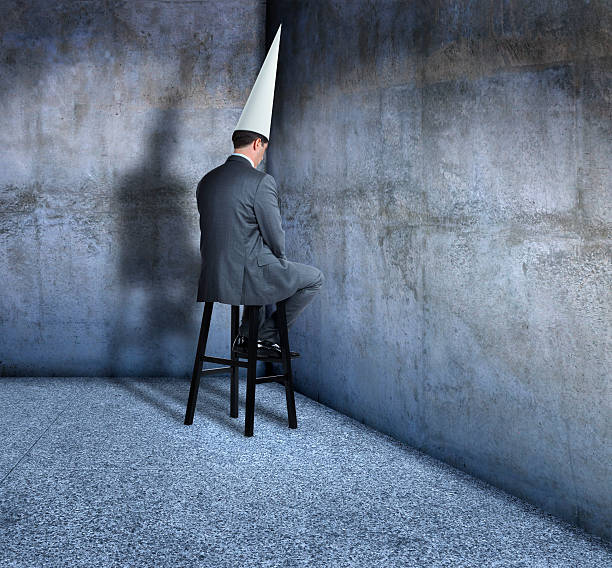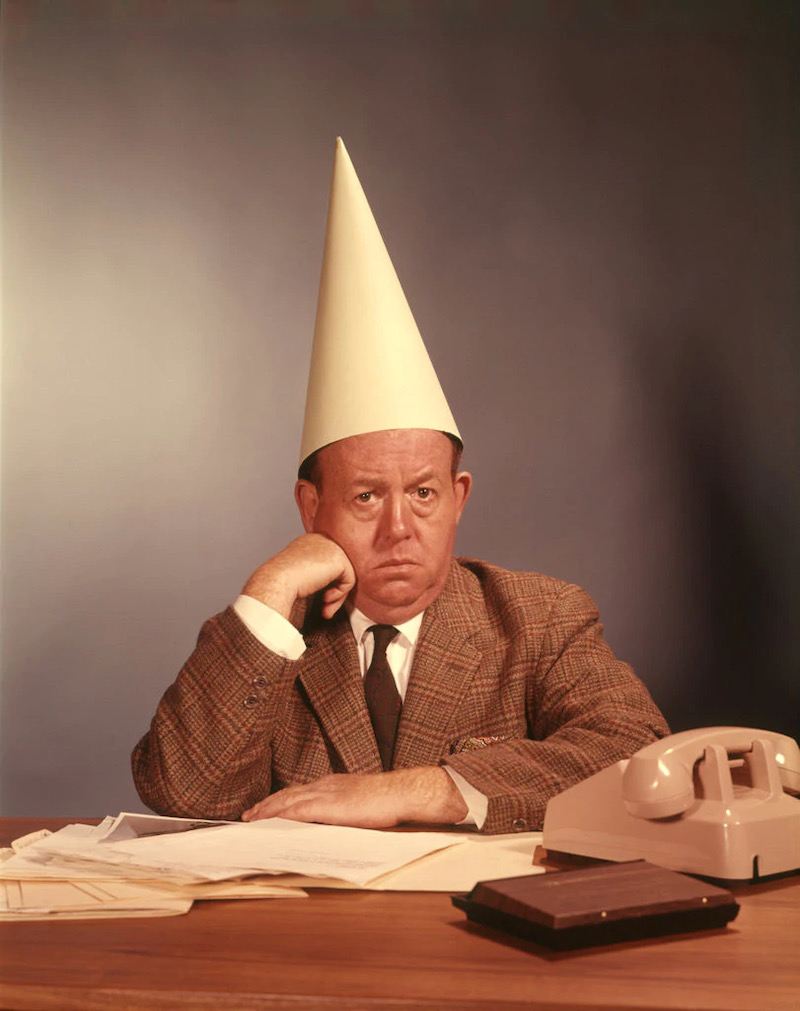We all know someone who seems to think they’re smarter than they really are. They may be terrible at their job, lacking basic skills or knowledge, yet they strut around with an exaggerated sense of confidence.
This psychological phenomenon is known as the Dunning-Kruger effect. It explains why incompetent people wildly overestimate their abilities while highly competent individuals tend to underrate theirs.

The effect reveals the brain’s intricate flaws in assessing its own skills and expertise. It also highlights why developing self-awareness and a willingness to learn are crucial for growth.
In this article, we’ll explore the fascinating Dunning-Kruger effect in-depth, covering:
- What is the Dunning-Kruger effect?
- Examples in everyday life
- The psychology behind the effect
- How it impacts health and well-being
- Strategies to overcome the bias
We’ll start with an intriguing real-world case study that illustrates just how pronounced this cognitive bias can be.
The Bank Robber Who Thought He Was A Master Of Disguise
In August 1995, a bank robber named McArthur Wheeler walked into two different banks in Pittsburgh on the same day and proceeded to rob them – without wearing any sort of disguise.
He didn’t wear a mask, wig, makeup, or anything to conceal his appearance. Yet each time he robbed a new bank, he looked right into the surveillance camera and seemingly believed his face was hidden.
When arrested by police shortly after, Wheeler was shown the security footage of himself openly robbing the banks. Yet he still appeared confused, insisting “But I wore the juice” – referring to his non-existent disguise.
This profound lack of self-awareness encapsulates the Dunning-Kruger effect in a nutshell. Wheeler’s incompetence at robbing banks and disguising himself caused a mental blindspot – an inability to recognize his own shortcomings.
So what exactly is the Dunning-Kruger effect? How was this strange psychological quirk discovered? And why do we all fall victim to it from time to time? Let’s take a closer look.
What Is The Dunning-Kruger Effect?
The Dunning-Kruger effect is a type of cognitive bias that was first identified in a 1999 study by Cornell psychologists David Dunning and Justin Kruger. The researchers asked people to rate how they performed on tests of logic, grammar, and humor compared to their peers.
The results were eye-opening. Those who scored in the lowest quartile of the tests drastically overestimated their test performance, thinking they ranked among the top quartile. In contrast, the most competent participants underrated their skills.
In other words, the less skilled people were at a particular domain, the more inflated their self-assessment became. Conversely, the more knowledgeable people were, the more modest they tended to be in rating themselves.
As Dunning and Kruger summarized in their pivotal paper: “People tend to hold overly favorable views of their abilities in many social and intellectual domains. The incompetent…have more diminutive expertise and insight than they admit.”
Since its discovery, the Dunning-Kruger effect has been replicated across various studies involving different skills like reading comprehension, operating a vehicle, and playing games. It appears to be a widespread and persistent cognitive bias.
Examples In Everyday Life
While McArthur Wheeler’s blatant obliviousness illustrates an extreme case of the Dunning-Kruger effect, we all experience this bias regularly in daily life.
Consider the office coworker who rambles on in meetings despite lacking expertise on a topic. Or the terrible singer who auditions for reality shows with total confidence. The student who overestimates their knowledge before exams. The amateur athlete who thinks they’re a pro.
Dunning-Kruger moments run rampant on social media, where users with limited knowledge routinely broadcast extreme opinions and claim expertise. Studies show the effect is amplified on platforms like Twitter, giving rise to rampant misinformation and polarized discourse.
The Psychology Behind The Dunning-Kruger Effect
While the effect may seem counterintuitive at first, psychologists have identified several reasons why incompetent people suffer from such inflated self-perception.
Lack of self-awareness: At the core of the Dunning-Kruger effect is a fundamental lack of self-awareness or metacognition. Those who struggle in a domain fail to recognize their own skill deficiencies and knowledge gaps. They simply don’t know what they don’t know.
Poor skills at evaluating abilities: The incompetent also lack the mental faculties to properly evaluate their performance and expertise. Just as their knowledge in the domain is lacking, so too are their abilities to judge how good they are.
Flawed use of heuristics: The brain uses mental shortcuts and “rules of thumb” to make judgments. But the incompetent have limited knowledge to work from, causing them to rely on flawed assumptions and heuristics that systematically inflate their self-perception.
Failure to recognize top performers: When exposed to experts in a field, the incompetent assume their skills are superior too. They fail to appreciate just how skilled the top performers truly are and how vast the gap remains to get there.
Inflated confidence: Ironically, less skilled people often experience more confidence and self-assurance because they’re unaware of their limitations. This can create a dangerous positive feedback loop of further overconfidence.
However, the Dunning-Kruger effect is not limited to just the incompetent. The original study found overly modest estimations from top performers in certain domains as well.
Highly competent people may “lower the bar” when evaluating their expertise based on their deep knowledge. Regressing expectations creates a sense of “there’s always more to learn.”
Or highly skilled individuals may anchor their self-assessment on the achievements of the most elite performers in the domain, lowering their estimates relative to those exemplars. Their expertise still blinds them to how superior they are compared to most others.
The Impact On Health & Well-Being
While the phenomenon may seem comical or innocuous at first glance, the Dunning-Kruger effect can profoundly impact people’s health, well-being, and life outcomes in sobering ways:
Poor medical decision making: Incompetent people struggle to weigh health risks, follow medical advice, and avoid unproven remedies or treatments. Their overconfidence leads them to ignore important expert guidance.
Inability to learn and improve: If you greatly overestimate your abilities, you won’t see the need to address weaknesses and knowledge gaps. The incompetent often struggle with feedback and remain unaware of their need to learn and improve.
Financial and career missteps: Much like Wheeler’s bank robbing blunder, the Dunning-Kruger effect causes people to take on endeavors and responsibilities beyond their abilities. Poor self-knowledge leads to costly mistakes.
Damaged relationships: Inflated self-views and arrogance can create conflicts with others and alienation, as incompetent people ignore or dismiss others’ input and advice while stubbornly clinging to misconceptions.
Anxiety, depression, and low self-esteem: On the flip side, the effect rears its head in highly competent individuals who suffer anxiety, lack of motivation, and even depression due to underestimating their true talents.
The Dunning-Kruger pattern has major ethical implications as well. For example, studies found a significant portion of people overestimated their ethical behavior and reasoning compared to others.
In short, this cognitive bias doesn’t just reveal incompetence – it perpetuates it. The more unaware you are of your limitations, the less likely you’ll proactively address them in ways that could improve your health, performance, and quality of life.
How To Overcome The Bias
Clearly, the Dunning-Kruger effect has wide-reaching impacts and remains a fundamental barrier to human progress and growth. So how can we learn to overcome it?
Here are some science-backed strategies that can increase self-awareness and accurate self-assessments:
Seek out feedback: While our introspective abilities are inherently limited, actively pursuing feedback from others – including subject matter experts – can shed light on blind spots. Be open to criticism, advice, and coaching.
Test yourself: Comparative tests and formal assessments are key for recognizing your true abilities and knowledge levels relative to others in that domain. Standardized benchmarks reveal where you really stand.
Distance and perspective: Personal distance from the subject matter can improve objectivity and self-insight. Taking a step back and reflecting from a distance illuminates inadequacies you might not see up close.
Stay humble: As mounting scientific evidence suggests, maintaining an attitude of humility and openness to learning and growth counteracts the overconfident tendencies of the Dunning-Kruger effect. Recognize there’s always more to learn. Avoid making judgments without adequate expertise.
Foster a growth mindset: Those with a “growth mindset” – believing their abilities can improve over time with effort – are less prone to the Dunning-Kruger bias. They don’t view skills as fixed, innate traits. Adopt this mentality of lifelong learning.
Identify knowledge gaps: A key to self-improvement is knowing what you don’t know. Admitting uncertainty and knowledge gaps – rather than pretending to have all the answers – is crucial for accurately self-assessing competence levels.
Train metacognitive skills: Metacognition, or the ability to think about your own thinking processes, helps overcome Dunning-Kruger blindspots. Training techniques like keeping a journal can boost these self-monitoring capacities.
In professional and educational settings, educators and organizational leaders also have an important role in helping people navigate and counter the Dunning-Kruger effect in themselves and others.
Effective feedback delivery: Using structured processes to provide regular, constructive feedback helps raise self-awareness. Managers and teachers should create a culture where this open developmental feedback is welcomed.
Self-assessment guidance: Introducing techniques like self-testing, reflective writing, and goal-setting exercises equips people with tools for more accurate self-monitoring and recognition of abilities and areas for growth.
Make expertise transparent: In fields or roles where incompetence poses serious risks, leaders should strive to make qualifications and credentials transparent and meaningful. Clear benchmarks of expertise allow for fairer appraisals of ability.
In essence, the great paradox of the Dunning-Kruger effect is that overcoming it first requires recognizing your own lack of self-knowledge and openness to learning. Those most affected are often those least equipped to see the light.
Cultivating humility, self-awareness, and a growth mindset enables us to gradually lessen this pernicious bias’s impacts. Only then can we make better choices and take full advantage of our innate human potential.
While we all fall prey to miscalculating our skills and competence in life from time to time, the Dunning-Kruger effect is an important reminder to always keep learning, questioning, and periodically re-evaluating our abilities with guidance and wisdom from others.
The Next Steps Towards Greater Self-Awareness
If the Dunning-Kruger effect teaches us one thing, it’s that we should never be too sure about how sure we are. Our self-perception is constantly clouded by myriad cognitive biases.
The pursuit of accurate self-knowledge and continual growth requires diligent commitment to the following practices:
- Seeking out honest external feedback and differing perspectives
- Testing and validating our skills against objective standards
- Adopting an attitude of humility and openness to being wrong
- Monitoring our thought processes for flawed assumptions
- Embracing the mindset that abilities can always improve over time

With care and conscious effort to combat our innate blindspots, we can all progress towards greater self-awareness, better judgments and choices, and the full realization of our unique human potentials.
The recognition of cognitive biases like the Dunning-Kruger effect is a crucial first step on this never ending journey of wisdom and mastery. Stay humble, keep learning, and don’t be afraid to sometimes admit: “I may not be as brilliant as I think.”
Hey there! We hope you love our fitness programs and the products we recommend. Just so you know, Symku Blog is reader-supported. When you buy through links on our site, we may earn an affiliate commission at no extra cost to you. It helps us keep the lights on. Thanks.
Disclaimer: The information provided in this discussion is for general informational and educational purposes only. It is not intended as medical or professional advice. Only a qualified health professional can determine what practices are suitable for your individual needs and abilities.

